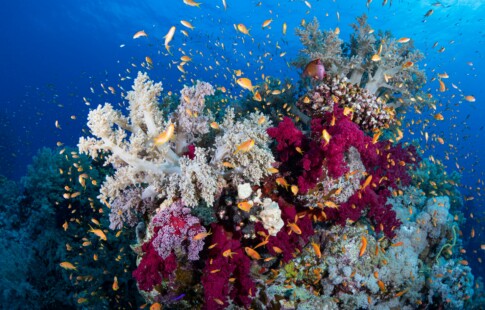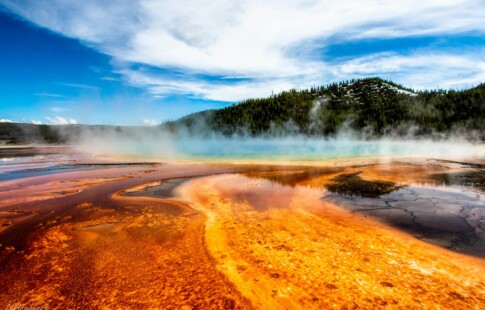
What Is Ecological Systems Theory and Why Does It Matter?
We are reader-supported. When you buy through links on our site, we may earn affiliate commission.
The American mindset prides itself on rugged independence — “bootstrapping.” However, the reality is that human beings require more than intrinsic motivation to survive. Their success largely depends on the environment in which they exist. Meanwhile, support systems and the overall contribution of outside influences on their mental and physical health. Studying the impact of these factors and improving them is the heart of ecological systems theory.
Ecological systems theory states that to understand a person’s development and psychology, you must examine their complex relationships with other people and the surrounding environment. For instance, children don’t grow up in a vacuum. They reflect the values and lessons of their families, peer groups and society at large.
While the field sounds complex and technical, it’s not. Everyone should understand the basics of ecological systems theory. Applying its principles to modern life helps you make educated choices in today’s highly divisive climate. Improving the world requires ongoing pressure from the public to create a society where all can thrive, not only a privileged few.
It’s also crucial to understand these principles as the world becomes more computerized and mechanized. If people don’t recognize why nature is vital to their well-being and very ongoing existence, they can heedlessly destroy her in the pursuit of false progress — as many already do. Here’s a closer look at what ecological systems theory is and why it matters more than ever.
A Brief Explanation of Ecological Systems Theory
Imagine you wanted to raise goldfish. You wouldn’t have much success if you brought them home from the store without first investing in an aquarium. For your new pets to thrive, you must first supply them with the correct environment.
That explanation — raising fish — is a simple analogy for what ecological systems theory is. For any living organism to thrive, it requires the correct environment. In humans, this consists of everything from food and shelter to items higher on Maslow’s hierarchy, such as self-esteem and self-actualization.
As any beginning aquarist knows, multiple factors influence how well your fish thrive. This includes the air pump and filtration system quality to the right chemical balance in the water. Humans are infinitely more complex. However, ecological systems theory breaks down the influences on psychology and development into five principal categories:
- The microsystem: Consists of people with whom individuals interact daily — parents, spouses, siblings, teachers, colleagues, etc.
- The mesosystem: Defines the links between the various microsystems in one’s life. For example, a child who is abused at home may struggle to thrive in school.
- The exosystem: Refers to outside influences over which the person has no control but nevertheless affects them. For example, the pandemic shook up exosystems, leaving some people without the supports for managing their daily existence.
- The macrosystem: The greater culture of the individual — for example, being born in the U.S. instead of Germany or Uganda.
- The chronosystem: Milestones many people face across cultures, such as a parents’ divorce, turning 18, getting married, etc.
Understanding how these systems interact is vital to treating individuals with mental health disorders. Failure to recognize the impact of these influences on their psyche invalidates their experience, which could turn them off treatment altogether. Furthermore, a basic comprehension of ecological systems theory is crucial to creating a human-centric government and society.
Ecological Systems Theory and the Mental Health Crisis
Understanding ecological systems theory is crucial to addressing mental health issues like anxiety and depression. Rates were already at epidemic levels before the pandemic and spiked during it, thanks in large part to disrupted exosystems. For example, people with tumultuous home lives whose job was their respite found themselves unemployed. Likewise, those working the 12-Steps found their regular support meetings interrupted.
Counselors need to understand ecological systems theory, especially when working with traditionally underserved populations. For example, a daily yoga and meditation practice can help accelerate healing, especially in patients with PTSD. However, recommending it to a client currently experiencing homelessness sounds hopelessly out of touch and risks alienating the patient or invalidating their trauma.
Furthermore, addressing the mental health crisis means addressing the societal and environmental conditions that foster the development of these diseases. This process begins in infancy, with the right physical and emotional support for people to thrive. Consider the following.
Children Need Physical Stability and Emotional Nurturing to Thrive
The first question all citizens should ask themselves is how well their country supports their parents. After all, children are the future — that’s not just a Whitney Houston lyric. To thrive, kids need the following:
- Physical security: A stable home, adequate nourishing food, medicines and health care to check developmental milestones and healthy, outdoor places to play and grow their skills.
- Emotional nurturing: Children need at least one caregiver who fulfills their emotional needs, helping them identify and validate their feelings and cope with them in healthy ways. This process takes time — it’s not something kids can gain from a slide in school.
The mental stuff comes after the basics on Maslow’s hierarchy, and yet, societal factors make it challenging for many parents to meet those. Consider this: Despite its wealth, the United States remains the only nation to deny workers paid leave as a matter of law. While other countries give parents up to a year to nurture their children after giving birth, here, they may have to report to the office mere days after delivery.
Is it any wonder that our nation lags educationally? Ecological systems theory teaches that one unhealthy microsystem — such as a home with a single mother too often absent due to the need to work multiple, low-wage jobs — affects every other. A child from such a home may act out in school because they never learned the emotional regulation skills necessary for success in groups, stymying their academic success.
Who is to blame? In the United States, it often falls on the harried, unfortunate parent, condemning her for having children she can’t afford. However, such attitudes ignore reality and perpetuate the pain, suffering — and resulting mental illness.
A better question is why does our larger system, our culture, leave these parents so often to struggle alone? Why do we collectively lack the support that other nations provide to nurture future generations and ensure their success? This ultimately begs the question, if we aren’t creating this society based around people and helping them reach their full potential, what are we building it for?
These questions, indirectly posed by ecological systems theory, can guide your daily decision-making. They help you determine what charities to support, which businesses deserve your hard-earned money and what circle to color come election day.
Ecological Systems Theory and Climate Change
Ecological systems theory also brings home the importance of taking action to correct the human impact on climate change. Countless studies show the multiple health benefits of spending time in nature. It’s impossible to divorce humans from it and expect them to thrive, but a changing world means depriving many of the basic, clean environment they need to survive.
For example, up to ten million people already lose their lives prematurely, thanks to air pollution’s effects. This loss isn’t all in developing, third-world countries but also America’s inner cities. Many such people experience tremendous suffering before death when health care costs devastate family fortunes and leave others with nothing.
Furthermore, climate change also fuels mass migration, an exosystem event affecting each microsystem. Every family displaced experiences trauma that colors their mental and even their physical health, sometimes for a lifetime.
Creating a Better World Through Ecological Systems Theory
Fortunately, the principles of ecological systems theory can provide a blueprint for a better world. By understanding how different systems affect one another, we can establish societal support programs that better provide for human needs from infancy to the grave.
Some argue against such measures, claiming that helping one another with basic needs is tantamount to creating a “nanny state” and making people lazy. Nothing could be further from the truth. Science has repeatedly shown that people as a collective whole are more productive when they can meet their basic needs. You can’t expect people to bootstrap with no boots.
A healthy ecological system designed for human beings would provide the following:
- Meaningful work: All work is meaningful but loses all value when it no longer provides the basics of survival. A true living wage is a must.
- Meaningful relationships: Society can do much better in encouraging healthy relationships by limiting the workday and providing adequate paid leave for parents to bond with and raise their children.
- A clean, healthy environment: People should be free to breathe the air, drink the water and eat the richness that nature provides without worrying about it poisoning them.
Reaching this ideal takes time, and people will continue to disagree on the best route to get there. One thing is for certain, though: ecological systems theory shows that a mindset shift from profit to people is in order if we want to encourage peak physical and mental health — which, ironically, is necessary to maximize productivity.
Why Ecological Systems Theory Matters
Even if you never heard of ecological systems theory, it impacts your life. Although people might like to think their destinies are simply a matter of intrinsic motivation, in reality, the environment in which you exist largely determines your future.
Understanding how these various systems impact one another is vital to wise decision-making. You can use your new knowledge of ecological systems theory to guide your daily decisions, from whether to recycle to how to cast your vote.
Share on
Like what you read? Join other Environment.co readers!
Get the latest updates on our planet by subscribing to the Environment.co newsletter!
About the author
Maria Visser
Maria serves as the Assistant Editor of Environment.co. A true foodie and activist at heart, she loves covering topics ranging from veganism to off grid living.





